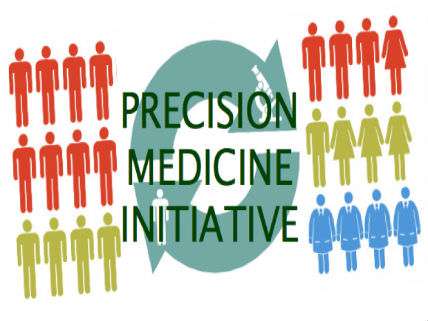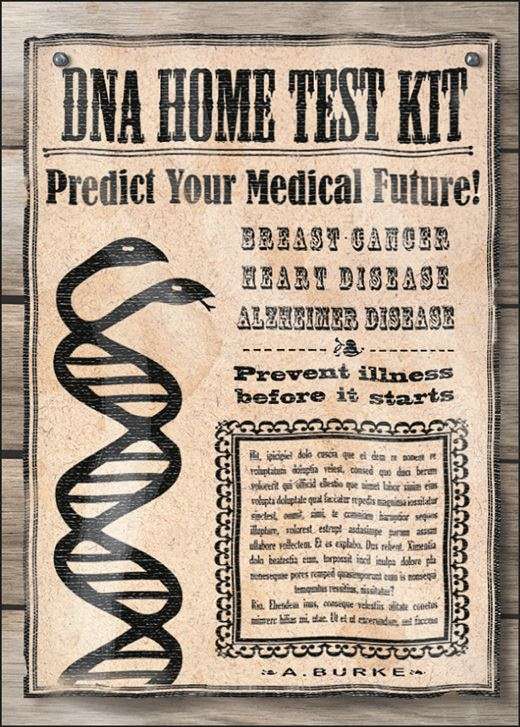Hey Bioethicists, Stop Treating Us Like Dim-Witted Children!
Let us decide for ourselves if genetic ignorance is bliss.

The Precision Medicine Initiative aims to sequence the genomes of one million Americans who will share their genetic data, biological samples, and diet/lifestyle information, all linked to their electronic health records if they choose. Launched earlier this year, the National Institutes of Health explains that the research will:
• Advance pharmacogenomics, the right drug for the right patient at the right dose
• Identify new targets for treatment and prevention
• Test whether mobile devices can encourage healthy behaviors
• Lay scientific foundation for precision medicine for many diseases
In addition, the NIH promises that the initiative is pioneering a new model for doing science that emphasizes engaged participants, responsible data sharing, and privacy protection. Not at all surprisingly, some bioethcists have succumbed to their customary knee-jerk paternalism and are arguing for a "model" that denies participants access to their own genetic information.
The journal Nature is reporting this week some are pushing back and arguing …
… that participants should at least have the option to see all their personal data so that they can investigate their own health…. But some specialists in the field say that showing participants their data is irresponsible, because the information is challenging for people to interpret and its significance is often uncertain.
Most genetic variants linked to disease increase risk only slightly, yet people who discover that their genome holds such a variant might worry excessively or seek unnecessary medical tests. Or they might do nothing: the limited research on how people react suggests that, far from causing panic, information about common variants of small-to-moderate effect does not seem to motivate people to make recommended long-term behavioural changes to lessen risk. "Unless you give people the tools and the skills to deal with the raw data, I don't see how you could give them the raw data," says Brian Van Ness, a geneticist at the University of Minnesota in Minneapolis.
Others counter that letting researchers choose what information to share with participants is paternalistic. "I don't know why we're so afraid of the genome that we say it's dangerous for people to have this information," says Sharon Terry, director of the Genetic Alliance in Washington DC. "All of us live with all kinds of uncertainty all the time."

Trey is entirely correct. In all my years of reporting on medical biotechnology, I have never come across any research suggesting that any substantial number of people given access to their genetic or genomic information ever freak out over what they are told. And even if a few do, that's no reason for the medical research establishment to treat the rest of us like dim-witted children.
In its 2013 letter banning the genotype screening company 23andMe from sharing genetic data with new customers, the bureaucrats at the Food and Drug Administration had to make up dire scenarios since they could identify none in the real world.
In my article, Warning: Bioethics May Be Hazardous to Your Health, I opened by reporting how bioethics mandarins tried to abuse breast cancer survivor Joy Simha:
In 1996, a 28-year-old breast cancer survivor named Joy Simha decided to take the new genetic test for the breast cancer gene BRCA1. If Simha tested positive for the gene, she would face a 50 percent to 85 percent chance of her breast cancer recurring or of developing ovarian cancer in her lifetime. As a preventive measure, she planned to have her remaining breast removed. But her oncologists at Sloan-Kettering Memorial Cancer Center in New York refused to tell her the results of her own test.
"It was just a very paternalist attitude," Simha says now. "They kept telling me, `We really feel that the results could be dangerous if they are revealed to you at the wrong time.'" So Simha took her frustration to the press. "If I did not want to know the results of my tests," she wrote to The New York Times Magazine, "I would not have given the doctors my blood."
By refusing to reveal such test results to their patient, Simha's doctors believed they were practicing medicine at the highest ethical level; keeping patients in the dark in such circumstances has been recommended by such prestigious bioethics authorities as a 53-member panel of ethicists and lawyers chaired by Stanford University law professor Henry Greely. "The test for BRCA1 should be confined to the research setting," declared the panel's report which was presented at a conference at the University of Southern California's Pacific Center for Health Policy in 1996. The ethics panel advised women not to take the commercial test for BRCA1 because "there are no known methods for preventing breast or ovarian cancer that would be particularly important to women with versions of these genes." …
But Simha's story has a happy ending. As a result of the press attention, her doctors relented and gave her the test results. She had tested negative, and she dropped plans for another mastectomy. Far from having a "toxic" result, the test actually helped Simha avoid another dangerous and painful procedure.
Furthermore, the Pacific Center was wrong in stating that there is no way to avoid breast cancer. A Mayo Clinic study published in January in The New England Journal of Medicine found that "surgery that removes the breasts as a preventive measure before the appearance of cancer reduces the risk of breast cancer by approximately 90 percent for women at moderate to high risk for the disease." That is precisely the treatment that Simha had planned. But though the Mayo study is important, it is beside the ethical point: Even in the face of medical uncertainty, such decisions should be up to Simha and other at-risk women, not a panel of imperious bioethicists.
Just as true now as the day I wrote it more than 15 years ago.
Bioethicists: Let us decide for ourselves if genetic ignorance is bliss.
Note: If you are interested in finding out some of what is genetically wrong with me, scan through my genotype screening information online here. I have nothing to hide.


Show Comments (85)